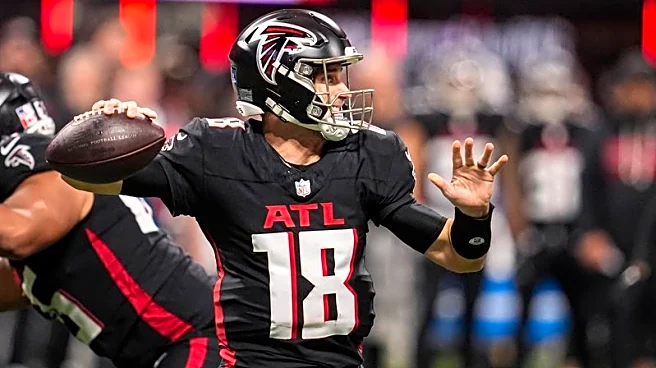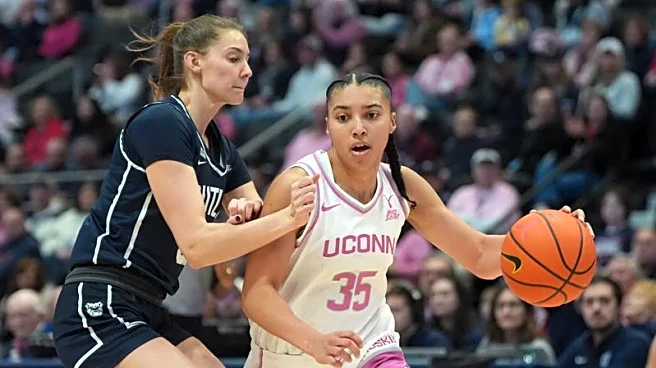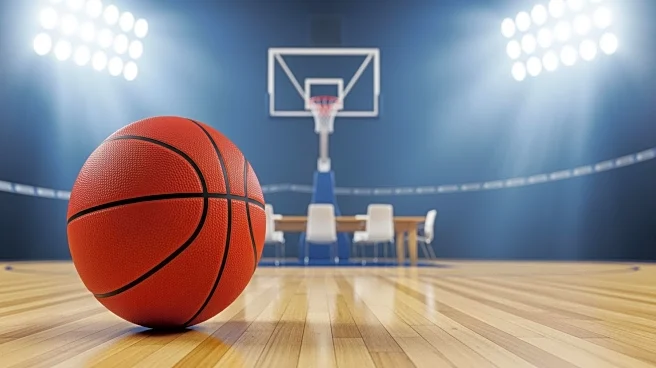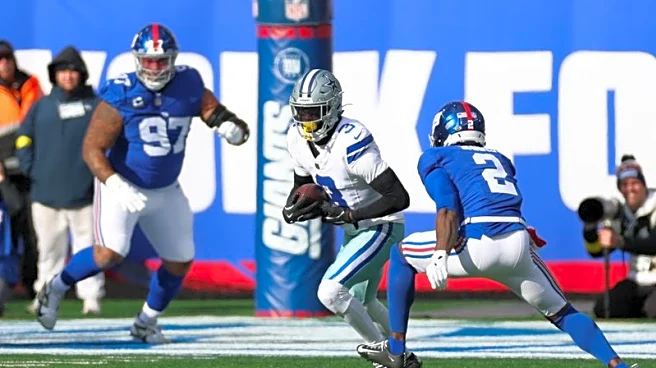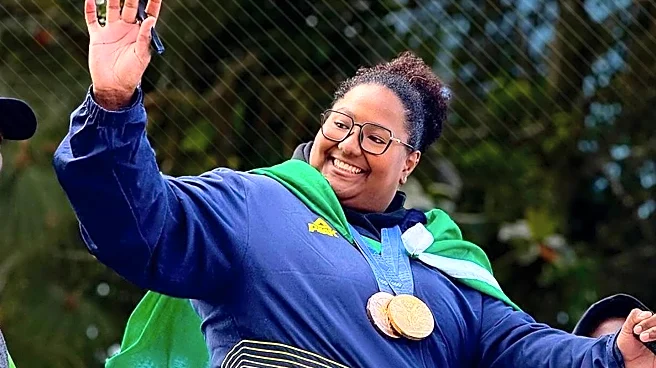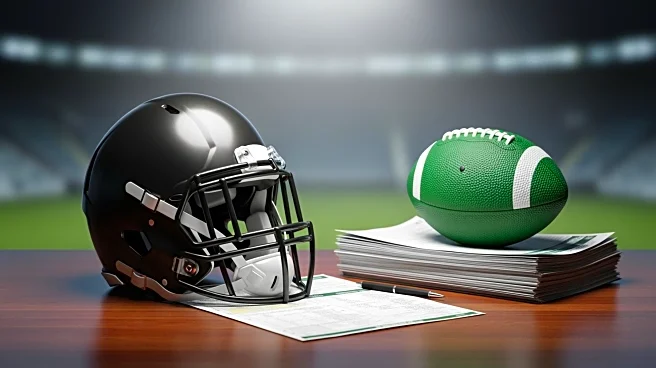What's Happening?
NBC has regained broadcasting rights for the NBA, marking the return of the iconic theme song 'Roundball Rock' by John Tesh. The song, which became synonymous with NBA broadcasts during the 1990s, is set
to accompany NBC's coverage once again as part of a new 11-year, $77 billion broadcast rights deal. This agreement includes NBC's streaming service, Peacock, and Amazon Prime Video, while renewing deals with ESPN and ABC. NBC's previous coverage of the NBA was noted for its memorable moments, including the Chicago Bulls' dominance led by Michael Jordan. The return of 'Roundball Rock' is expected to evoke nostalgia among fans who associate the song with the league's golden era.
Why It's Important?
The revival of 'Roundball Rock' and NBC's NBA coverage signifies a major shift in sports broadcasting, potentially impacting viewership and advertising revenue. NBC's return to NBA broadcasting could attract audiences nostalgic for the 1990s era, potentially boosting ratings and engagement. The inclusion of streaming platforms like Peacock and Amazon Prime Video reflects the evolving landscape of sports media, where digital access is increasingly crucial. This move may influence other networks to reconsider their strategies in acquiring sports rights, highlighting the competitive nature of sports broadcasting.
What's Next?
NBC's NBA coverage will debut with a game between Oklahoma City and the Rockets, followed by the Warriors at the Lakers. The network's approach to integrating 'Roundball Rock' into its broadcasts will be closely watched, as it aims to leverage the song's nostalgic appeal. Stakeholders, including advertisers and sports analysts, will monitor the impact of NBC's return on viewership and market dynamics. The success of this venture could lead to further collaborations between traditional networks and streaming services in sports broadcasting.
Beyond the Headlines
The return of 'Roundball Rock' highlights the cultural significance of theme music in sports broadcasting, serving as a bridge between past and present NBA eras. It underscores the role of music in shaping viewer experiences and memories associated with sports events. The decision to revive the song reflects a broader trend of leveraging nostalgia in media to engage audiences, suggesting potential future strategies for networks seeking to capitalize on iconic elements from their history.


